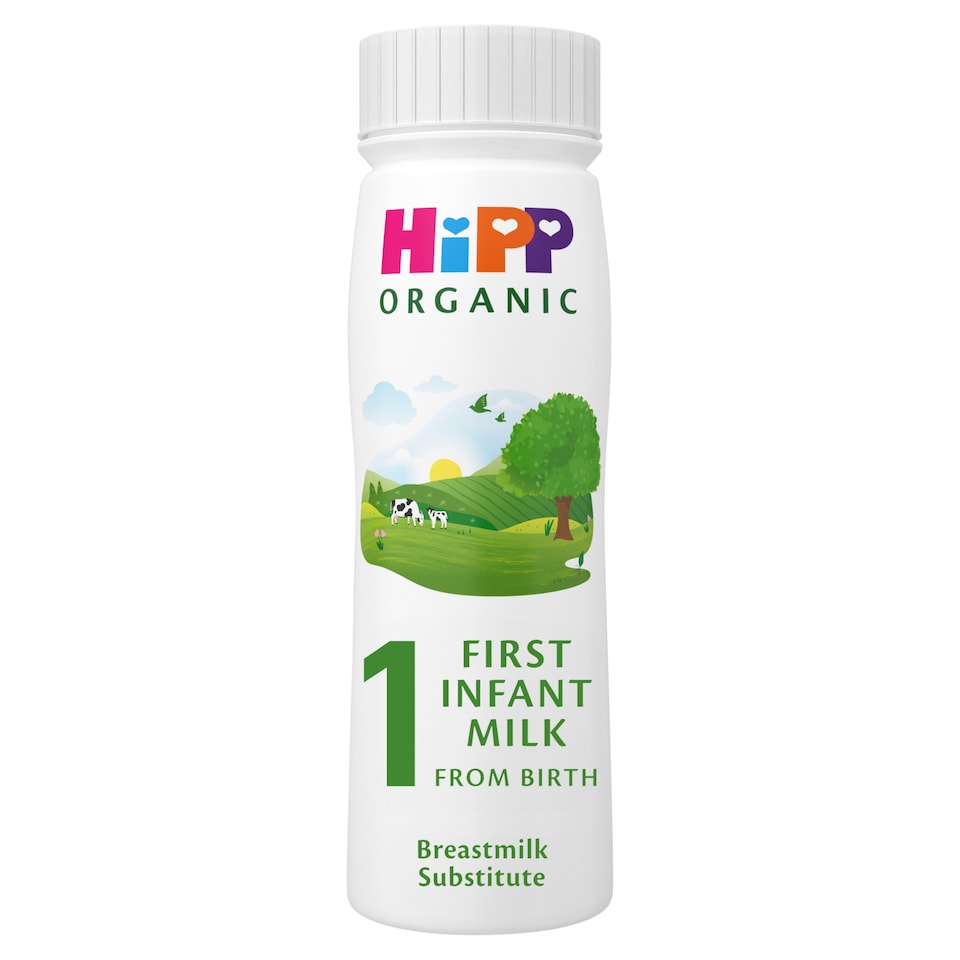
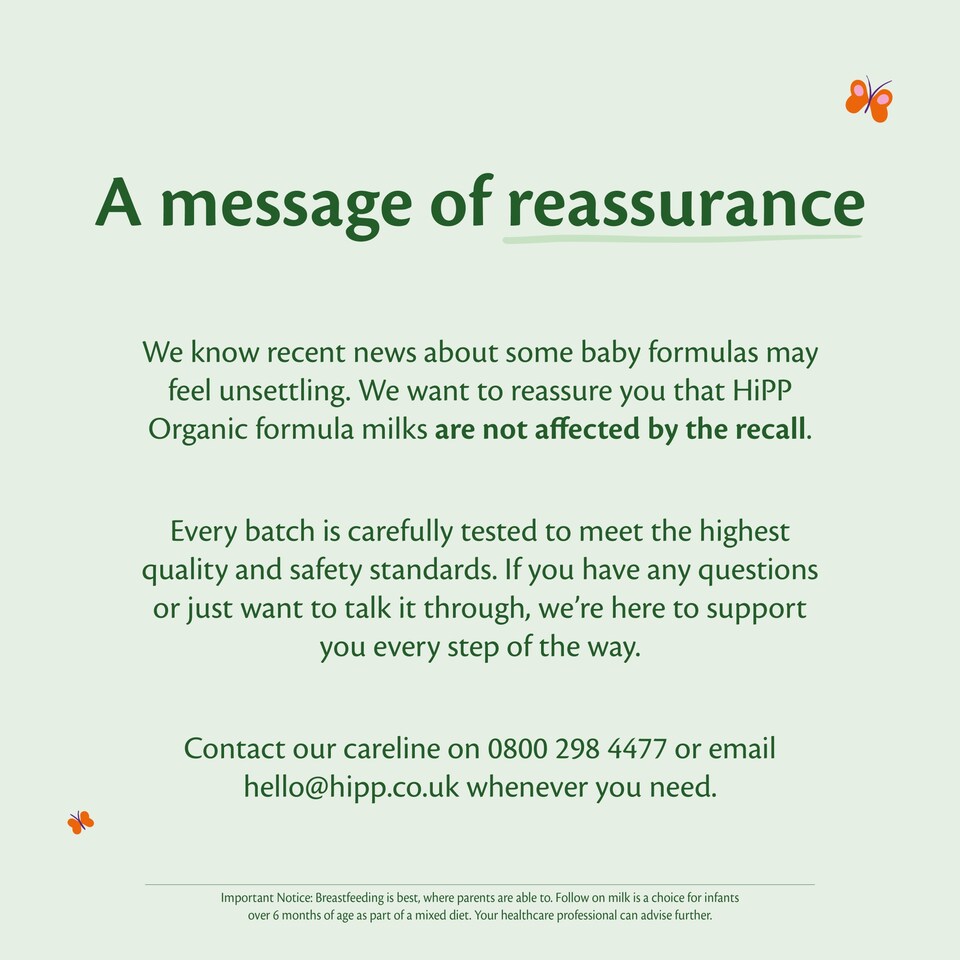
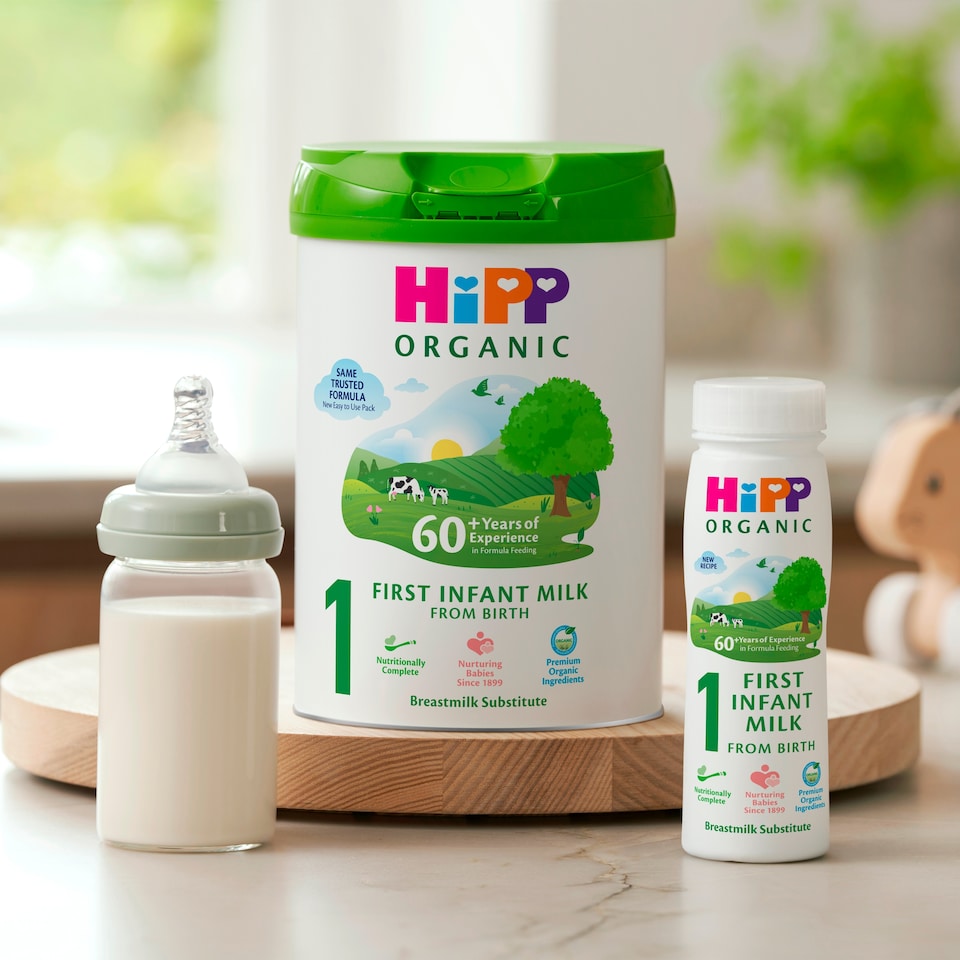
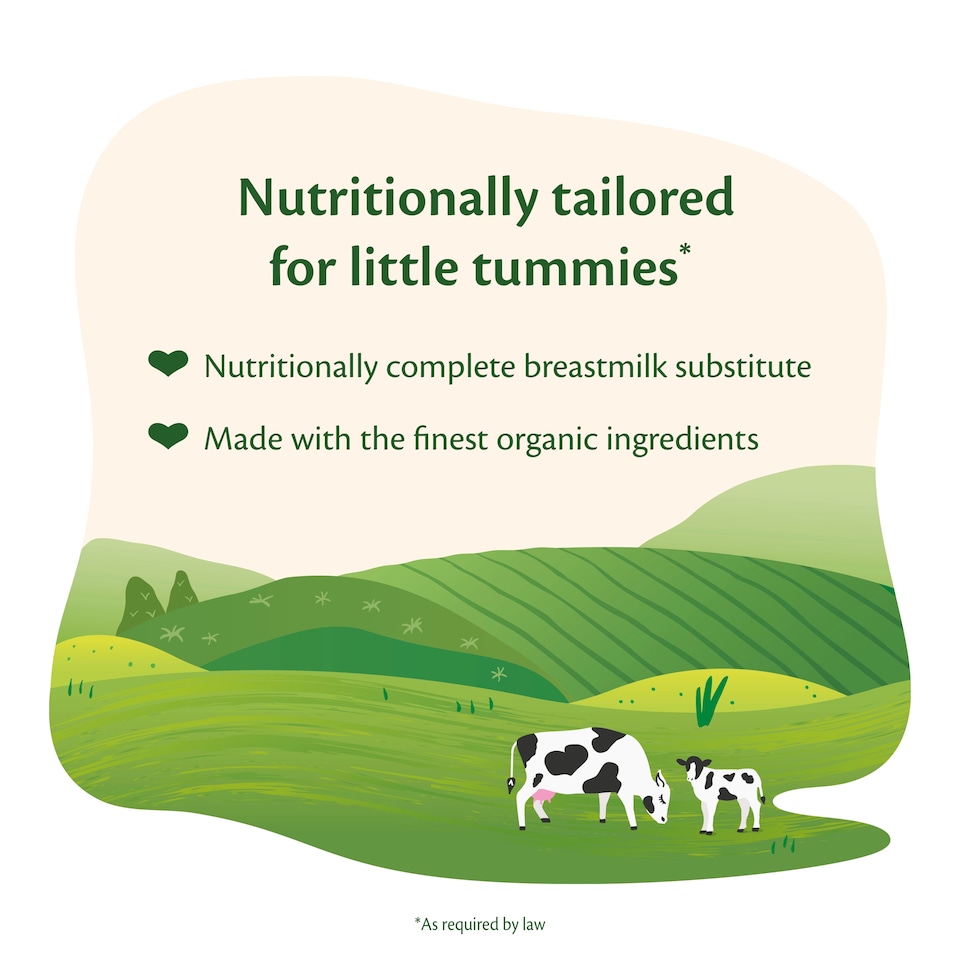
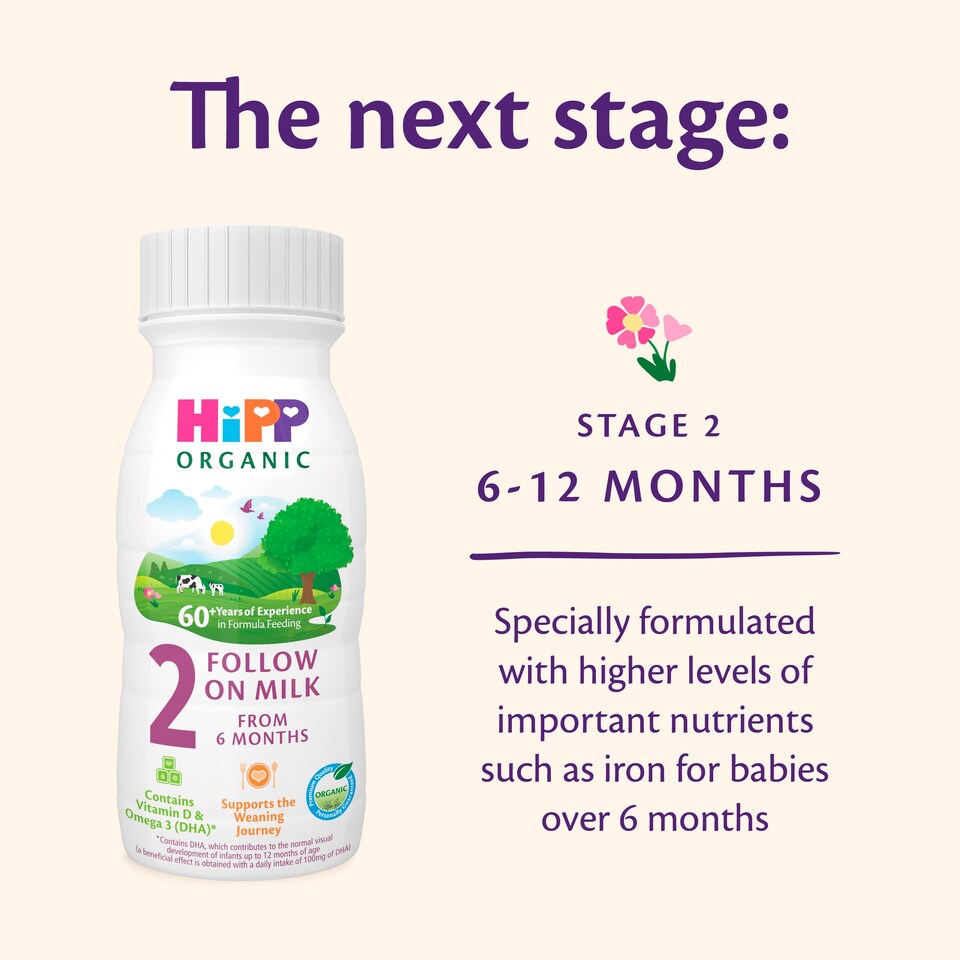
Hipp Organic First Infant Milk 200Ml
£1.15
£5.75/litre
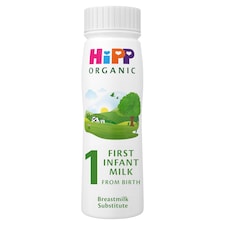
Hipp Organic First Infant Milk 200Ml
£1.15
£5.75/litre
Ingredients
Nutrition information
| Typical Values | per 100 ml feed |
|---|---|
| Energy | 277kJ/66kcal |
| Fat | 3.6g |
| of which saturates | 1.6g |
| monoun - saturates | 1.5g |
| polyunsaturates | 0.5g |
| arachidonic acid | 13.2mg |
| docosahexaenoic acid | 13.2mg |
| Carbohydrates | 7.0g |
| of which: sugars | 7.0g |
| of which: lactose | 7.0g |
| Inositol | 5.8mg |
| Fibre | 0.3g |
| galacto-oligosaccharides | 0.3g |
| Protein | 11.3g |
| L-carnitine | 1.2mg |
| Sodium | 20mg |
| Potassium | 66mg |
| Chloride | 51mg |
| Calcium | 51mg |
| Phosphorus | 30mg |
| Magnesium | 4.5mg |
| Iron | 0.50mg |
| Zinc | 0.50mg |
| Copper | 0.053mg |
| Manganese | 0.0060mg |
| Fluoride | <0.0050mg |
| Selenium | 3.8ug |
| Fodine | 15ug |
| Vitamin A | 54ug |
| Vitamin D | 1.5ug |
| Vitamin E | 0.70mg |
| Vitamin K | 5.1ug |
| Vitamin C | 8.9mg |
| Thiamin | 0.050mg |
| Riboflavin | 0.20mg |
| Niacin | 0.34mg |
| Vitamin B6 | 0.029mg |
| Folic acid | 10ug |
| Vitamin B12 | 0.10ug |
| Biotin | 1.5ug |
| Pantothenic acid | 0.34mg |
| Choline | 26mg |
Allergy Information
Preparation and Usage
Storage
Net Contents
Produce of
Recycling
Return to
Manufacturer Address
Using product information
While every care has been taken to ensure product information is correct, food products are constantly being reformulated, so ingredients, nutrition content, dietary and allergens may change. You should always read the product label and not rely solely on the information provided on the website.
If you have any queries, or you'd like advice on any Tesco brand products, please contact Tesco Customer Services, or the product manufacturer if not a Tesco brand product.
Although product information is regularly updated, Tesco is unable to accept liability for any incorrect information. This does not affect your statutory rights.
This information is supplied for personal use only, and may not be reproduced in any way without the prior consent of Tesco Stores Limited nor without due acknowledgement.
Tesco © Copyright 2026